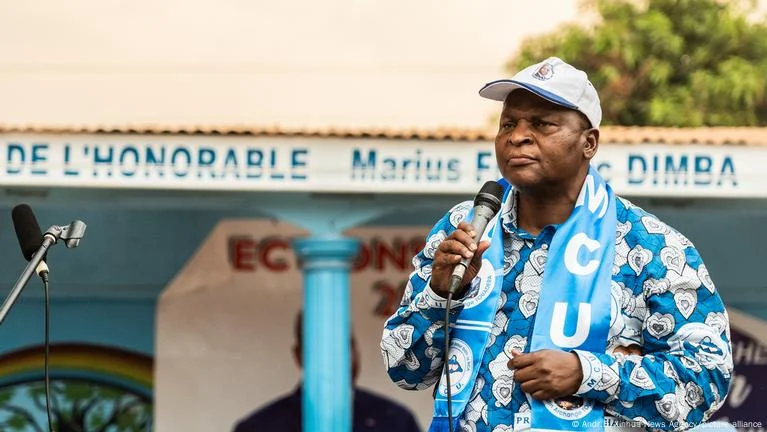On January 4, 2021, the National Elections Authority (ANE) declared President Faustin-Archange Touadéra the winner of the December 27, 2020, presidential election with 53.9% of the vote, securing a second term, ANE chief Mathias Morouba announced in Bangui.
Runner-up Anicet-Georges Dologuélé, with 21.01%, called the election a “farce,” citing irregularities and fraud, per AFP. The Constitutional Court confirmed Touadéra’s 53.16% win on January 18, reporting a 35.25% turnout, affected by widespread insecurity.
Rebel Offensive Disrupts Voting
The election, coinciding with legislative polls, faced a violent offensive by the Coalition of Patriots for Change (CPC), formed on December 19, 2020, by six rebel groups, including ex-Séléka and anti-Balaka factions, to disrupt the vote after the court barred former President François Bozizé’s candidacy.
Voting ceased in 29 of 71 sub-prefectures and was curtailed in six others, leaving thousands unable to vote, per official figures. The CPC, accused of ties to Bozizé, aimed to “march on Bangui,” but federal soldiers, MINUSCA peacekeepers, and Russian and Rwandan reinforcements blocked their advance.
Bangassou Attack Escalates Tensions
On January 3, 2021, CPC rebels seized Bangassou, 750 km east of Bangui, in a “violent attack” starting at 5 a.m., killing five fighters, MINUSCA reported. Two soldiers were injured, and 180 civil servants and aid workers sought refuge at a UN base.
MINUSCA secured parts of the city by January 4, but Doctors Without Borders’ Emmanuel Lampaert said rebels controlled Bangassou, with 80% of residents fleeing to the Democratic Republic of Congo, per RFI. The UN reported 60,000 displaced since December.
Bozizé’s Alleged Role
CAR prosecutors launched an investigation into Bozizé on January 4, accusing him of plotting a coup with the CPC, per Reuters.
Bozizé, who seized power in 2003 and ruled until his 2013 ouster, faced a 2014 arrest warrant for murder and torture and UN sanctions for supporting anti-Balaka militias. Returning from exile in December 2019, he denied coup allegations, though CPC military head Abacar Sabone admitted targeting Bangui to force dialogue, per Al Jazeera.
Political and Security Challenges
Touadéra’s government controls only one-third of CAR, with militias holding the rest since the 2013 conflict, per France 24. The 2019 Khartoum peace deal, integrating rebel leaders as “special military advisers,” collapsed when Touadéra dismissed them for CPC involvement, per USIP.
Dologuélé and the COD-2020 opposition coalition demanded a re-run, alleging UN bias, but Chief Judge Danièle Darlan rejected fraud claims, citing minimal impact from irregularities. The election, despite 76.3% turnout among 910,000 registered voters, reflected defiance against rebel intimidation, Darlan said.
International Response
MINUSCA’s 12,800 peacekeepers, alongside Russian Wagner mercenaries and Rwandan troops, repelled CPC attacks, including a January 13 assault near Bangui, per Africanews.
The UN condemned the violence, with MINUSCA head Mankeur Ndiaye linking attacks to electoral disruption. France, Russia, and Rwanda’s involvement highlights geopolitical rivalries, with The Sentry noting their ties to armed groups, though France denied the claims, per TNH. The violence, killing thousands since 2013 and displacing over 1 million, underscores CAR’s instability.






